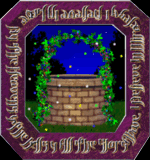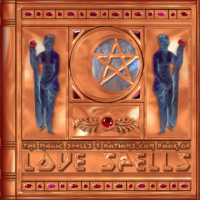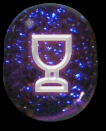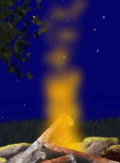Plantain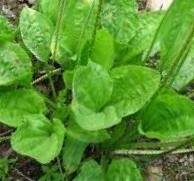
The Plantains (Plantaginacecoe), from planta, the sole of the foot, are humble plants, well known as weeds in fields and by roadsides, having ribbed leaves and spikes of flowers conspicuous by their long stamens. As Herbal Simples, the Greater Plantain, the Ribwort Plantain, and the Water Plantain, are to be specially considered.
Added Dec 1, 2010
| 62,098 Reads
The Greater Plantain of the waysides affords spikes of seeds which are a favourite food of Canaries, and which, in common with the seeds of other sorts, yield a tasteless mucilage, answering well as a substitute for linseed. The leaves of the Plantains have a bitter taste, and are somewhat astringent. The generic name Plantago is probably derived from the Latin planta, the sole of the foot, in allusion to the broad, flat leaves lying close on the ground, and ago, the old synonym for wort, a cultivated plant. This greater Plantain (Plantago major) is also termed Waybred, Waybread, or Waybroad, "spread on the way," and has followed our colonists to all parts of the globe, being therefore styled "The Englishman's Foot" and "Whiteman's Foot." The shape of the leaf in the larger species resembles a footprint. The root has a sweet taste, and gives the saliva a reddish tinge. Dioscorides advised that it should be applied externally for sores of every kind, and taken internally against haemorrhages. In the Romeo and Juliet of Shakespeare, Romeo says, "Your Plantain leaf is excellent for broken shin." Country persons apply these leaves to open sores and wounds, or make a poultice of them, or give fomentations with a hot decoction of the same, or prepare a gargle from the decoction when cold. The expressed juice of the greater Plantain has proved of curative effect in tubercular consumption, with spitting of blood. This herb is said to furnish a cure for the venomous bite of the rattlesnake, as discovered by the negro Caesar in South Carolina. It is of excellent curative use against the intermittent fevers of Spring, but for counteracting autumnal (septic) fevers it is of no avail. The virtues of the greater Plantain as an application to wounds and sores were known of old. It possesses a widespread repute in Switzerland as a local remedy for toothache, the root or leaves being applied against the ear of the affected side. Those persons who proved the plant by taking it experimentally in various doses, suffered much pain in the teeth and jaws. Accordingly, Dr. Hale found that, of all his remedies for the toothache, none could compare with the Plantago major. It gives rise to an active flow of urine when taken in considerable doses, and when administered in small doses of the diluted tincture, it has proved curative of bed wetting in young children. Gerard tells that "Plantain leaves stuped stayeth the inordinate flux of the terms, though it hath continued many years." For inflamed protruding piles, a broad-leaved Plantain reduced to a pulp, and kept bound to the parts by a compress, will give sure and speedy relief. Highlanders call it Slanlus, the healing plant. The Ribwort Plantain (Plantago lanceolata), Ribgrass, Soldiers, or Cocks and Hens, is named from the strong parallel veins in its leaves. The flower stalks are termed Kemps, from campa, a warrior. The leaves are astringent, and useful for healing sores when applied thereto, and for dressing wounds. This Plantain is also named Hardheads, Fighting Cocks, and in Germany, Devil's Head, being used in divination. Children challenge one another to a game of striking off the heads. Toads are thought to cure themselves of their ailments by eating its leaves. In Sussex, it is known as Lamb's Tongue. The powdered root of the Ribwort Plantain is of use for curing vernal ague, a dessertspoonful being given for a dose, two or three times in a day. The Water Plantain (Alisma Plantago), belonging to a different natural order, is common on the margins of our rivers and ditches, getting its name from the Celtic alos, water, and being called also the greater Thrumwort, from thrum, the warp end of a weaver's web. The root and leaves contain an acrid juice, dispersed by heat, which is of service for irritability of the bladder. After the root is boiled so as to dissipate this medicinal juice it makes an edible starchy vegetable. This plant is commonly classed with the Plantains because its leaves resemble theirs; but in general characteristics and qualities it more properly belongs to the Ranunculaceoe. Its fresh leaves applied to the skin will raise a blister, and may be used for such a purpose, especially to relieve the swollen legs of dropsical subjects when the vesicles should be punctured and the serum drawn off. They contain a pungent butyraceous volatile oil. The seeds dislodged from the dry, ripe plant, by striking it smartly on a table, are good in decoction against bleedings, and are employed by country people for curing piles. About the Russian Empire the Water Plantain is still regarded as efficacious against hydrophobia. Dr. George Johnston says: "In the Government of Isola it has never failed of a cure for the last twenty-five years." Reduced to powder it is spread over bread and butter, and is eaten. Likewise, cures of rabid dogs by this plant are reported; and in America it is renowned as a remedy against the bite of the rattlesnake. The tubers contain a nutritious substance, and are eaten by the Tartars. Apropos of this "Water Plantain" a Teesdale proverb says: "He's nar a good weaver that leaves lang thrums." The small seeds of a Plantain grass which grows commonly in Southern Europe, the Fleawort, or Plantago Psyllium, have been known from time immemorial as an easy and popular aperient. In France these Psyllium seeds, given in a dessertspoonful dose, are widely prescribed as a laxative in lieu of mineral aperient waters, or the morning Seidlitz. They act after being soaked for some hours in cold water, by their mucilage, and when swallowed, by virtue of a laxative oil set free within the intestines. The grass is well known in some parts as "Clammy Plantain," and it has leafless heads with toothed leaves. These seeds are dispensed by the London druggists who supply French medicines.
Added Dec 1, 2010
| 62,098 Reads
Share The Magic ...
The GoE MONEY!!! Course - A Course In Real MONEY MAGIC!
|

